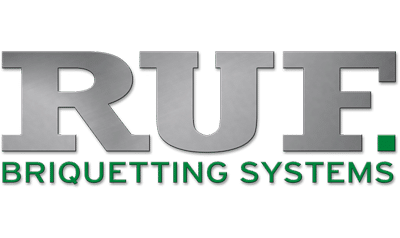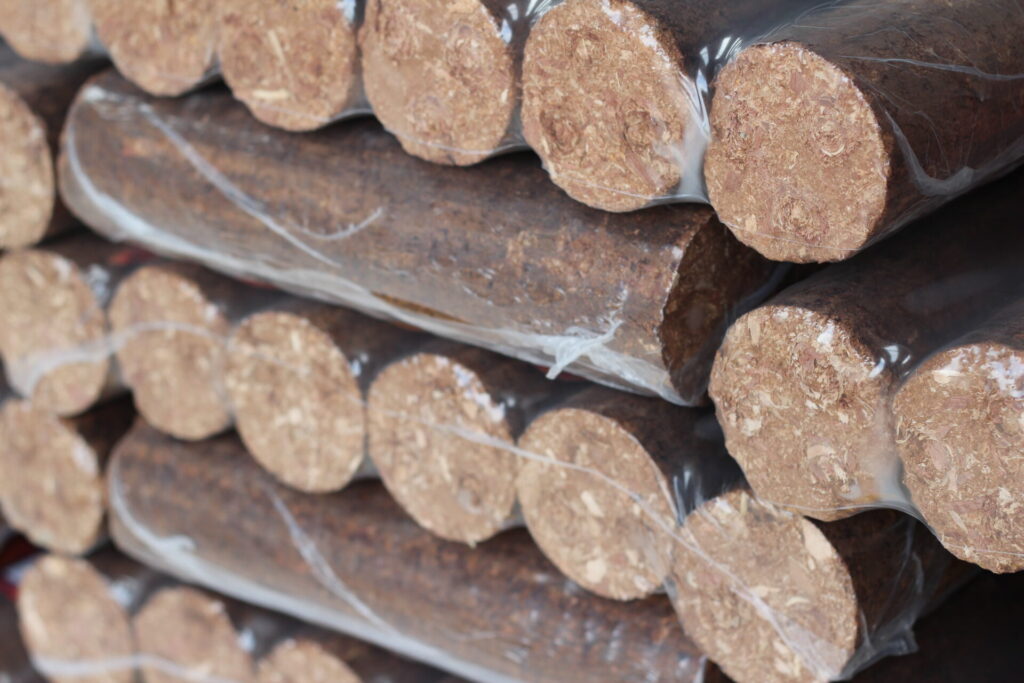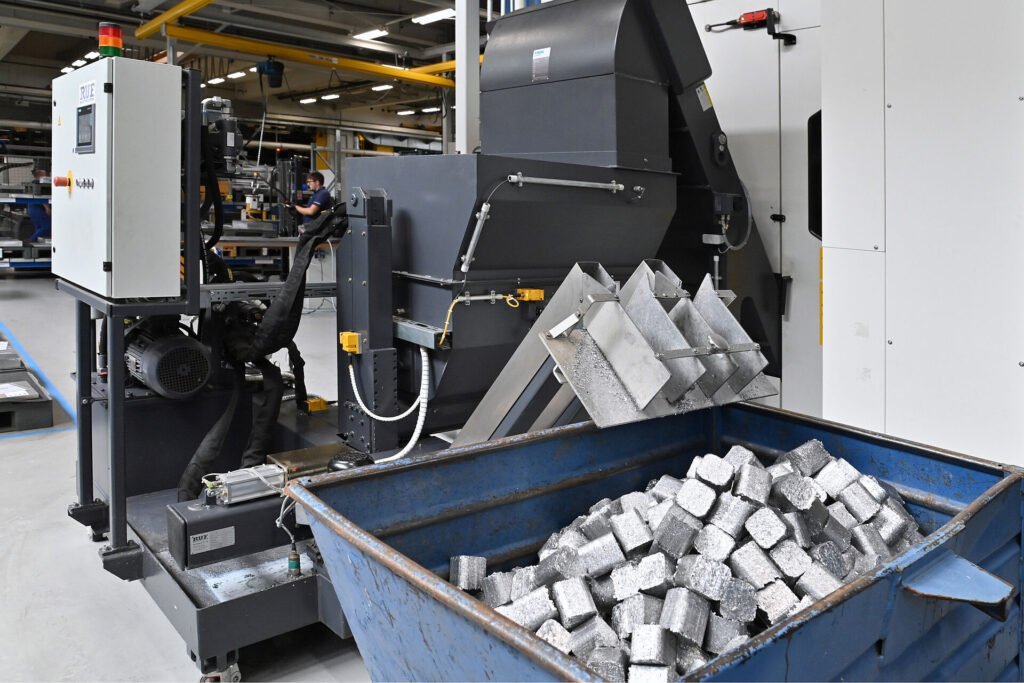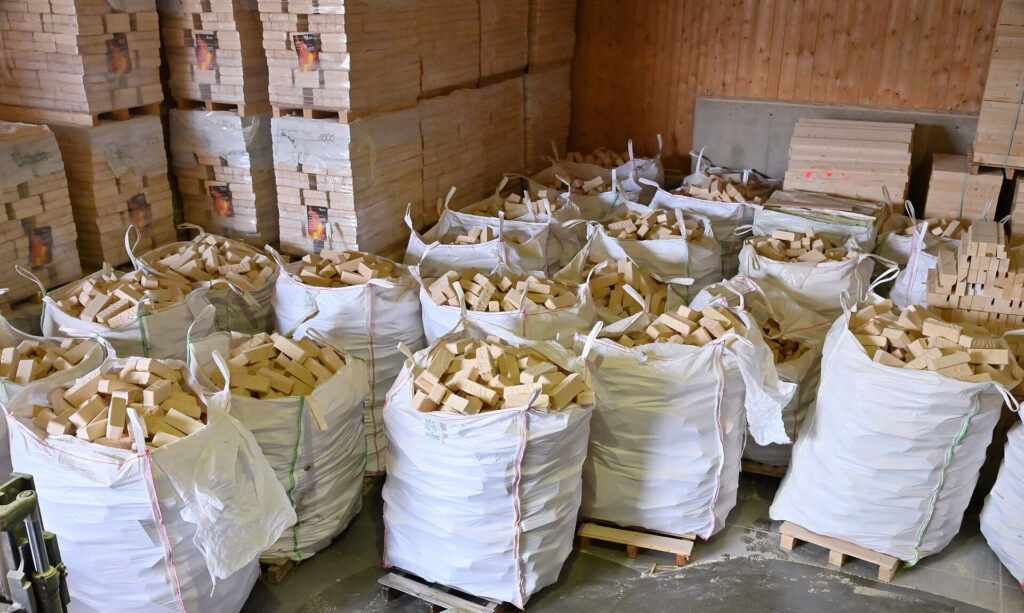RUF briquetting systems: innovative, individual, international.
Being a machine builder and the market leader in the field of briquetting, the Ruf GmbH & Co. KG has successfully been specialising in the development and production of briquetting presses for 35 years now. We deliver customers throughout Germany and in over 100 countries worldwide with innovative and individual solutions for briquetting all manner of materials.
100% “Power made in Germany”
As the leading provider of systematic briquetting solutions sustainability is at the focus of our machine manufacturing Bavarian family businness. A long service life and the low degree of wear and tear both conserve resources and vouch for our high quality standards. Evident in everything from the precise assembly of individual components to the robust design and construction: RUF machines are built for heavy-duty tasks, operating around the clock.
Everything under one roof
We are a full service provider, delivering comprehensive, expert advice and support for all aspects of briquetting – from consulting and the planning of your specific briquette solution, through to construction, installation, commissioning, maintenance and inspection of your new equipment.






















